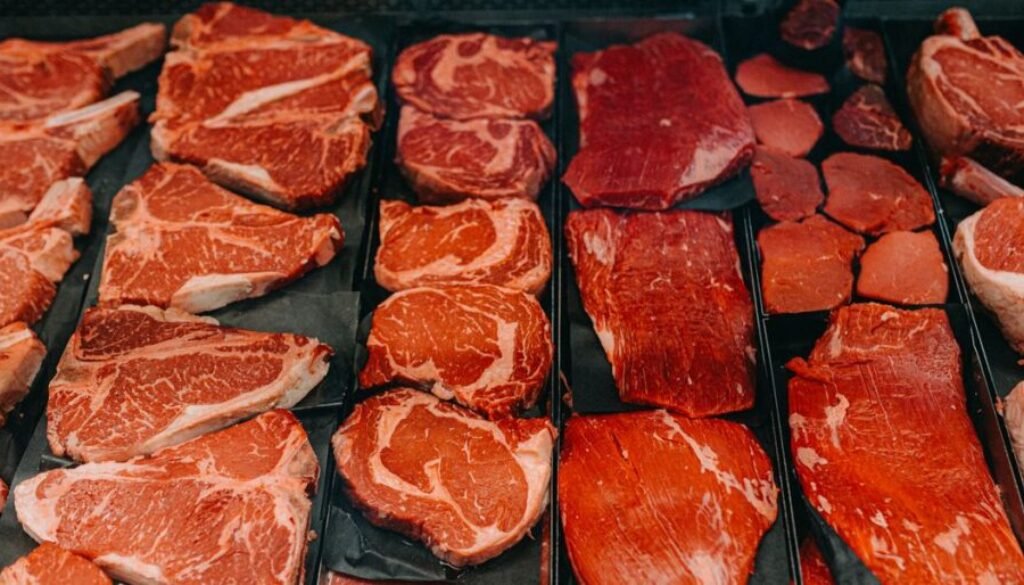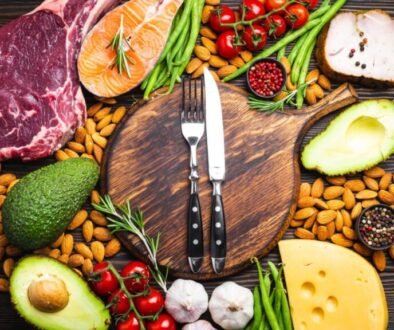What can you really eat on the carnivorous diet? Experts weigh
[ad_1]
The carnivorous diet is not only an intelligent name, it is an appropriate descriptor of what the diet is: meat.
While the carnivorous regime has existed in one form or another for hundreds of years – the others claim several thousand years – the modern approach of a fantasy focused on meat has increased in 2019 with a book published by Shawn Baker. We all know that “meat” is literally synonymous with the carnivorous diet, but what about other animal products, such as eggs and dairy products? Read the rest for all the details on what is authorized on this controversial food approach.
What exactly is the carnivorous diet?
This food approach focuses entirely on animal -based foods. “This means that it consists mainly of meat, fish, eggs and, in some cases, products derived from animals such as dairy products,” said Lauren Manaker, MS, RDN, LD, CLEC, a recorded dietitian, explains Delish. The diet eliminates all plant-based foods, she says, including fruits, vegetables, cereals, legumes, nuts and seeds. “The idea behind the carnivorous diet is to rely on density sources rich in nutrients for energy and food while avoiding irritants or potential allergens found in plant foods.”
Michelle Routhenstein, MS, RD, CDCES, CDN, a registered dietitian specializing in heart disease on fully fueled.com, says that Delish, the carnivorous diet corresponds to the definition of an “extreme elimination diet”.
Why is the carnivorous regime so popular?
Following the popularity of the keto and low -carbohydrate regimes, the carnivorous regime has become a fashionable diet among the fitness community, with influencers supporting the benefits and successes for health. “Many people report improvements in weight management, intestinal health, mental clarity and inflammation reduction,” said Manaker. “Historically, some argue that the first human ancestors relied heavily on animal -based diets, making Carnivory part of human evolution.”
By limiting glucose calories and other forms of sugar, the body burns fat. While popular keto diets can allow small amounts of carbohydrates, the carnivorous regime is the most extreme, without allowance for carbohydrates. The potential for relieving gastric irritants and weight loss offers short -term draw.
What foods dominate the carnivorous diet?
The carnivorous diet staples include cups rich in beef, pork, lamb, chicken and fish. Organ meats like liver and heart are encouraged for a high concentration of vitamins and minerals and, yes, many versions also allow eggs. Considered a staple food for many followers of this diet, eggs are valued for their rich protein content, beneficial fats and essential nutrients such as vitamins A, D, E and K.
Loctose dairy products such as butter, thick cream and some cheeses are often authorized, says Manaker. The bone broth is also popular for its collagen and healing properties
What foods are prohibited for the carnivorous diet?
If it is not from animals, the ingredients do not have their place in the carnivorous diet. “The carnivorous diet eliminates all vegetables, fruits, grains, legumes, refined sugar and vegetable oils,” explains Routhenstein. Processed sugars and foods are also strictly prohibited.
What are the health considerations of a carnivorous diet?
Manaker says that a major concern for a carnivorous diet is the lack of dietary fiber, essential for digestive health and healthy intestinal microbes, which could increase the risk of certain cancers. The exclusion of plant -based foods can cause deficiencies in certain vitamins and minerals, such as vitamin C and magnesium, which are more abundant in fruits and vegetables.
“As a cardiovascular dietitian, I do not recommend the carnivorous diet,” explains Routhenstein. “It is very rich in saturated fat and low in essential nutrients such as fibers, vitamin C, folate and antioxidants, which are vital for optimal heart health. A diet rich in saturated fat can increase atherogenic cholesterol levels and contribute to resistance to insulin, which are both key cardiometabolic health factors. ”
The restrictive nature of the diet can make it difficult for some to support, posing challenges both to adherence and to global nutritional balance and the long -term impacts of the diet are not fully studied.
The bottom line: The carnivorous diet completely emphasizes animal -based food ingredients – from meat to animal derived from eggs and dairy products – and eliminates plants based on plants and processed. While some bring in weight loss advantages and fewer gastric irritants, dietitists recommend a balanced diet with a mixture of long -term health.
Tim Newcomb is a journalist based in the northwest of the Pacific. It covers stages, sneakers, equipment, infrastructure, and even more for a variety of publications, including popular mechanics. His favorite interviews included sit-down with Roger Federer in Switzerland, Kobe Bryant in Los Angeles and Tinker Hatfield in Portland.
[ad_2]




